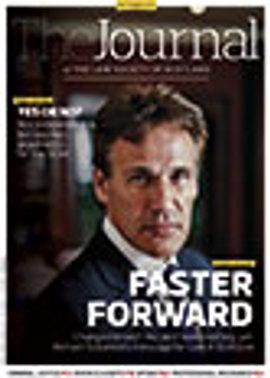Diary of an innocent in-houser
We had just about concluded a satisfactory deal, selling off a subsidiary for a decent price. Due diligence had been done. One of the key points was the acquisition of the subsidiary’s brand names. Our board had discussed this in detail previously and agreed the final terms.
Ronnie had decided on the morning that a brief update at the board would be appropriate and the divisional director, George, had decided I was just the guy for that; Jane the FD agreed. I rushed off a brief and succinct paper reflecting the prior discussion and agreement, the obvious merits and minimal risk of the deal.
Initially, it looked as though the item might be plain sailing. However, I had noticed that, contrary to his normal practice, the brigadier (a longstanding non-exec) had actually opened his papers before the meeting, which meant he might have read, if not necessarily understood, some of them. (Last time I had attended, he had asked Jane, “Just out of interest, what’s the difference between the number in brackets and the normal ones?” After Jane patiently explained the brackets were negative, he responded: “Good Lord, makes a bit of a difference. Curious it didn’t mention that in my book.” This was his Forces Guide to ex-servicemen joining company boards, his sort of bible for raising “interesting points”.)
I explained the deal in as business-as-usual a way as I could, and all seemed fine until the brigadier announced that on no account should we sell the brand names. We could offer their use through a licence, worldwide, cost free and permanent but, the brigadier argued, we should retain ultimate ownership. It was, he argued with unexpected eloquence, an asset we might wish to use again if the new owners failed and this was a fair way to deal with it – the purchasers still got what they needed. In vain did I argue we had already conceded this point, that we would not need the brands, and the brands accounted for much of the value.
I was instructed to reopen negotiations on this point, which I did the following day with predictable results. The purchasers would not go ahead on that basis and were surprised we should raise this now. They needed immediate reassurance we were back to the original deal. I persuaded George and Ronnie that this was not a good position for us and we must back off. They agreed and the chairman, when called, similarly agreed. The chairman asked me to call the brigadier and explain, and said that he would then advise the rest of the board.
I called the brigadier and explained the position. He sounded confused and suggested that it would be normal, surely, for the purchasers to acquire the brands in such a deal. I agreed but pointed out that was not what he had argued so powerfully the preceding day. “Ah,” he said cheerfully, “you may well be right. I glanced at my non-exec book again last night and think I may have got hold of the wrong end of the stick. Still, it was worth getting you to check the point, don’t you think?” Being a phone call, the brigadier was unable to read my body language.
In this issue
- Scotland: a patently obvious choice?
- Bringing order to family law
- Third party rights: behind the times
- Judicial review: closer to the surface
- A time for talent spotting
- Fixing fixed equipment (full version)
- Reading for pleasure
- Book reviews
- Profile
- President's column
- Moving up the gears
- Justice redefined
- Sep rep: decision time
- Petrodel: could it happen here?
- Clicks forward
- Cover lines
- Family time
- Fixing fixed equipment
- Rights undone
- Directors: not in name only
- Not quite joined up
- Heritage disowned
- Time to start growing your own?
- Are you keen to be mentored?
- LBTT: in with the new
- How not to win business: a guide for professionals
- Ask Ash
- Forum is place to flag up problems
- Scottish Barony Register fee rise
- From the Brussels office
- Law reform roundup
- Diary of an innocent in-houser






